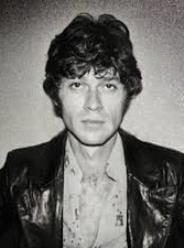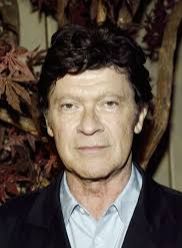|
The first time I heard The Band, late Sixties, I had known them all my life. They were the music of Canada and the States – the guitars and basses, the drums and organ, the wails and whistles, the trains passing through, the wind in the pines. I knew that music, even though they were just inventing it, four Canadians and a guy from Arkansas. The Band. Now Robbie Robertson, who wrote many of the songs and played the guitar so beautifully, has lived to tell his tale, in “Testimony” -- his new book about the nuclear fusion that produced The Band. I love shop talk from cops and miners and athletes and musicians and I learned a lot about how the Band came together – and broke apart. For all that, I found myself profoundly saddened by the unsurprising lowest common denominators of these five people – the music and the drugs. Richard Manuel hung himself at 40 and Rick Danko died in his sleep at 56 and Levon Helm lived to 71 when he succumbed to cancer, leaving Garth Hudson, now 79, and Robbie Robertson, now 73, in their very separate orbits. Robertson wrote such haunting lyrics but cannot summon up one primal scream about the impending doom of his mates. (The book ends before all that comes down.) And then I wrote. And then I played. Lots of girls around. And then we broke out the white powder that fueled the rages and the withdrawals, the car wrecks and the illnesses. I come at this, having only once held a joint and taken a few puffs, but I also inhaled enough second-hand smoke at the Fillmore and other places to know that the stuff works. I covered the Dylan-Band tour in New York in 1974; I briefly met all of them except Hudson, at other times. Hardly naïve, I nevertheless felt saddened at Robertson’s book. Did all those drugs produce that glorious music, summon the pain and the insight and the chords? Or did those drugs, so casually discussed in his book -- a shopping list of wanton self-destruction -- keep some of them from enjoying middle age, to say nothing of old age? Depends on how you define “enjoy.” It was the age. Robertson lists four or five geniuses he knew who died at 24. Twenty-four. People whose music still stirs me. They died for our pleasure? One of the most interesting aspects of the book is that the most thoughtful, most generous person is, get this, Bob Dylan – who was close to Robertson, often there with a mature observation, a generous gesture. Dylan was a survivor, whose backup band caught fire only to crash and burn. He has lived long enough to show his butt long distance to the Nobel Prize people. Thanksgiving was the 40th anniversary of The Last Waltz, their farewell concert (and catered dinner) in San Francisco and the classic Scorsese documentary. We took our son when he was, what, nine? Last month, three generations filtered into a family den to watch segments of it. Oh, my God, how good they were. I didn’t know much about Robertson, who tells about learning as a teen-ager that he was really the son of a Jewish gambler who died young, with exotic relatives in Toronto including a goniff-uncle right out of some Band songs, who later did time. Robbie’s striking mom, Rose Marie, earth mother to The Band, was of Mohawk descent, from the Six Nations Reservation near Toronto. Robertson was drawn to write songs about characters and flim-flam artists and restless souls, like the Cajun wanderers who leave Louisiana, to sail home to Acadia: “Set my compass north/ I got winter in my blood.” (I quote it all the time about why I winter on Long Island and not in Florida.) Having helped a few folks write their books, I had this urge to pull more reflection, out of Robertson. “Talk about your own voice; why were you not a soloist?” “Slow down and tell us more about how you wrote some of those lyrics?” “Do you think rehab might have helped some of you?” Am I asking too much of Robertson? This is, after all, the guy who wrote and played some of the most beautiful songs I know. Imagine trying to get Mad Vincent to slow down, put down the palette, tell us what you were feeling when you painted the orchards and the stars? So I don’t know how Robertson came to write “Rocking Chair,” about an old sailor who decides it’s time to stay home on the front porch. But I sing it when I am giving thanks I am puttering around the house with my headset on, not at some ball park. It's for sure, I've spent my whole life at sea/ And I'm pushin' age seventy-three; Now there's only one place that was meant for me: Robbie Robertson just got there. I can’t help feeling badly that some of The Band didn’t get to those shores. But listen to what they left behind…. 12/27/2016 03:00:29 pm
GV,
George Vecsey
12/27/2016 04:30:09 pm
Tom, thanks so much. I've been thinking about this since I read it last week. I met Robertson in 2002 when he wrote a song for the opening of the Winter Games in Salt Lake City. He came to a press conference and didn't seem to have much to offer...I chatted him, told him I was at Madison Square Garden for 3 or 4 performances. He didn't seem much impressed.
bruce
12/27/2016 03:13:39 pm
george,
George Vecsey
12/27/2016 04:36:38 pm
Bruce, thanks. Beatles are in the book, as are the Stones. Clapton pays a visit and hints he'd like to join....maybe play some guitar. Robbie wonders, "Wait...what?" So many people passed through Woodstock. Van Morrison. I believe Janis Joplin.
bruce
12/27/2016 05:40:50 pm
george,
Hansen Alexander
12/27/2016 08:27:58 pm
George, a pleasant remembrance to read. I was not familiar with the band but I liked your sentimental musings. Merry Christmas.
George Vecsey
12/28/2016 08:47:15 am
Hansen, thanks for the note. I'm surprised you don't know The Band, since you have a real sense of the world outside the big city.
Mendel
12/28/2016 09:52:11 am
Is substance-fueled music composition different than substance-fueled literary composition? Too many writers have gone the way of those 24 year old geniuses or have maintained lifelong relationships with the bottle. What says your experience, George?
George Vecsey
12/28/2016 04:30:45 pm
Mendel, a few very talented people I knew in the business flamed out young from drinking. I didn't know Hunter S. Thompson, but he would qualify, too. We've been to Dylan Thomas' town in Wales....how sad. Then Brendan Behan....Fitzgerald....Hemingway....I mean, on and on. There's a fine line of creativity/madness/depression. What I do know from writing a book with an alcoholic athlete (Bob Welch) is that the substance is just the tool -- the real issue is the feelings behind the abuse. Getting in touch with the feelings is the first step in admitting powerlessness. Hard for writers because the stuff is seen as part of the act. Ball players are tested for drugs...but writers are not. Whatever that means. Best, GV
Brendan Buckley
12/29/2016 06:17:05 pm
George,
George Vecsey
12/30/2016 09:54:54 am
Brendan: Thanks for the comments. I think there is a common strand of country/folk/rock. Great Canadian traditions from eastern provinces out west. And US "country" music had long reach at night. As a kid, I heard WWVA at night while visiting friends in NE NY State. -- Williams, Wells, Tubb, etc. Plus, Ronnie Hawkins took the Hawks to US South...and one of best parts of book is young Robbie visiting Arkansas with Levon. And weird happenings in Texas and Oklahoma. Considering the great musicians from Canada -- Mitchell, Cohen, Young, Lang. McGarrigles, Lightfoot.....the lines blur. Thanks again for caring about this stuff. GV
bruce
12/30/2016 10:26:33 am
george,
George Vecsey
12/30/2016 11:22:22 am
Bruce, I used to love driving at night when I lived in Kentucky....I could get the Opry on Saturday Night (WSM, Nashville) or New Orleans...or Marshalltown, Iowa, clear as a bell.
george
12/30/2016 12:03:14 pm
george,
George Vecsey
12/30/2016 01:15:24 pm
Bruce, it was probably USA spaceships monitoring you.
bruce
12/30/2016 01:42:29 pm
george,
Radie
1/2/2017 03:15:59 pm
You made me smile today listening to the Band. 1/10/2017 09:46:16 am
a href=”www.happynewyear2018wishes.blogspot.com/ "> New year 2018 wishes</a> <a href="www.newyear2018wishes.blogspot.com/ "> New year 2018 wishes</a> <a href="www.happynewyear2018messages.com/"> Happy new year 2018 message</a> <a href=”www.newyear2018images.org/ "> Happy new year 2018 images</a> <a href="www.newyear2018images.com/ "> Happy new year 2018 images</a> <a href="www.newyear2018images.net/ "> Happy new year 2018 images</a><a href="www.happynewyear2018greetings.com/ ">Happy new year 2018 greetings </a> <a href="www.happynewyear2018calendars.com/ ">Happy new year 2018 Calendars </a> <a href="www.images2018.com/ ">Happy new year 2018 images</a> <a href="www.manyhappynewyear.com/ ">Manny happy new year </a> <a href="www.manyhappynewyear.com/ ">Manny Happy new year </a> <a href="www.happynewyear2018wishes.net/ ">Happy new year 2018 wishes </a> Manny Happy new year </a> <a href="/www.happynewyear2018wallpapers.org/ ">Happy new year 2018 wallpapers</a> <a href="www.happynewyear2018wallpaper.com/ ">Happy new year 2018 wallpapers</a> <a href="www.happynewyear2018wallpaper.com/ ">Happy new year 2018 wallpapers</a> <a href="www.happynewyear2018.net/ ">Happy new year 2018 </a> Comments are closed.
|
Categories
All
|











